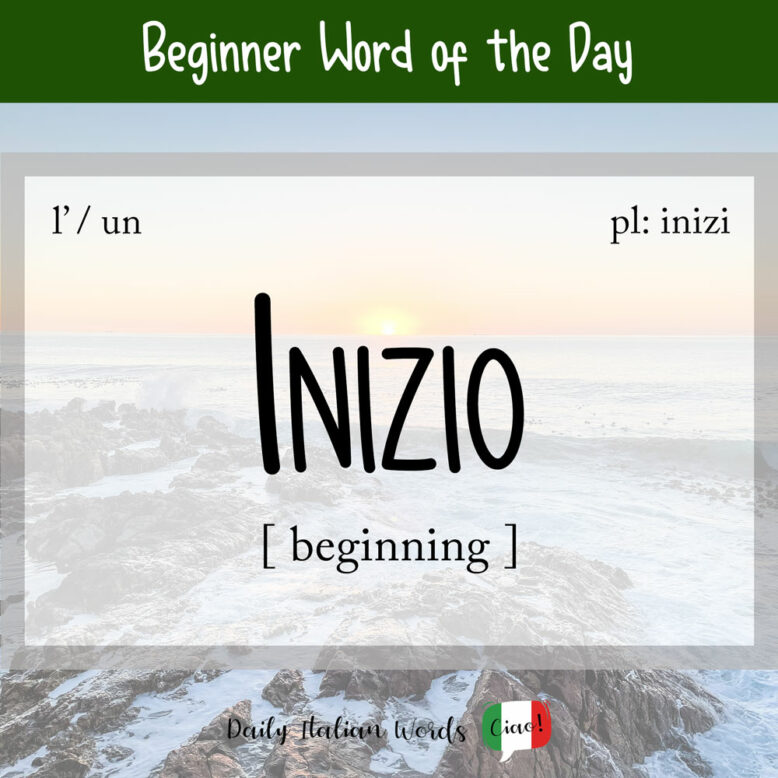The word for beginning or start in Italian is inizio (masculine, plural: inizi). If you find yourself struggling to remember this word, I’ve found that it helps to mentally associate it with the English word initial.

It shares the same origin as other useful Italian terms such as iniziare (to begin), inizialmente (initially, at the beginning), iniziale (initial), inizializzare (to launch) and iniziativa (initiative, venture).
L’inizio del film era interessante ma il finale era banale.
The beginning of the film was interesting but the end was banal.
Inizio can denote either a point in time or physical space where something begins. For example, l’inizio dell’anno (the beginning of the year) is a time expression whereas l’inizio della strada (the beginning of the road) refers to a precise location.
We’ve already mentioned that iniziare means to begin/start but you can also use the verb dare (to give) + inizio to say the same thing.
Sto per dare inizio ad un nuovo progetto.
I’m about to begin a new project.

You may have also heard avere (to have) + inizio but be aware that this structure is strictly intransitive and therefore cannot take a direct object.
La costruzione della chiesa ebbe inizio nel 1678.
The construction of the church began in 1678.
Inizio is frequently used in its plural form inizi when talking about prolonged periods or durations of time such as, for example, gli inizi del medioevo (the early Middle Ages) or gli inizi dell’estate (the start of summer).
Gli inizi sono sempre difficili.
It’s always difficult at the beginning.
(Lit: The initial period is always difficult.)
An expression that should be familiar to English ears is avere un buon / un cattivo inizio which means to get off to a good / bad start.
Below are a few additional expressions that you might find useful when carrying on a conversation in Italian:
- fin dall’inizio = from the very beginning, from the word go
- all’inizio di = at the beginning of
- dall’inizio alla fine = from beginning to end
- come inizio = to start with
- nuovo inizio = new beginning
- per inizio (e.g. dicembre) = for the beginning (of December) / at the beginning (of December) / in early (December)

Heather Broster is a graduate with honours in linguistics from the University of Western Ontario. She is an aspiring polyglot, proficient in English and Italian, as well as Japanese, Welsh, and French to varying degrees of fluency. Originally from Toronto, Heather has resided in various countries, notably Italy for a period of six years. Her primary focus lies in the fields of language acquisition, education, and bilingual instruction.


